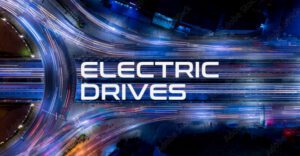- The fully-electric Lotus Emeya GT car has achieved a new record, with one example seeing the highest EV charging speed ever recorded by the model.
- A Lotus Emeya plugged into a 450kW ultra-rapid charger at Kuwait’s Lotus dealer reached a peak charging speed of 443kW, enabling the car to go from a 10% to 80% state of charge in only 13 minutes and 35 seconds.
- The achievement goes to show just how impressive recharge speeds can be on EVs with an 800-volt architecture.
Lotus Emeya smashes its previous EV charging record
Previously, the fastest charging speed recorded on a Lotus Emeya stood at 402kW, but this latest 443kW achievement once again cements the Emeya’s position as one of the fastest charging electric cars of 2025, taking it a significant step above EVs in the 300kW charging range such as the Porsche Taycan and Hyundai IONIQ 6.
With the record taking place on a Lotus 450kW charger at a Lotus dealer in Kuwait, the car and charger underwent high environmental temperatures – highlighting how these record charging speeds can be achieved even in extreme weather conditions.
The Lotus Emeya’s exceptional exceptional charging speed comes as a direct result of its sophisticated battery and charging architecture. It utilises a cell-to-pack battery structure, increasing the battery’s energy density by allowing for 20% more cells in the same footprint compared to a conventional module setup. This high-density battery is paired with a new cooling system to significantly enhance the battery’s thermal performance and overall efficiency during high-power operations such as ultra-rapid charging.
The latest performance of the Lotus Emeya on an ultra-rapid EV charger is impressive, but even faster charging speeds from other manufacturers are on the way. BYD revealed its ‘Super e-Platform’ earlier this year, with EVs built on this architecture set to support charging speeds of well over 1,000 kW – allowing a battery to be fully recharged in as little as five minutes. The manufacturer has also made clear that Megawatt chargers to support these speeds will be rolled out across much of the world. However, with the technology required to allow these speeds, the cheapest electric cars on the market are likely to stick to much lower maximum charging speeds for the foreseeable future.


